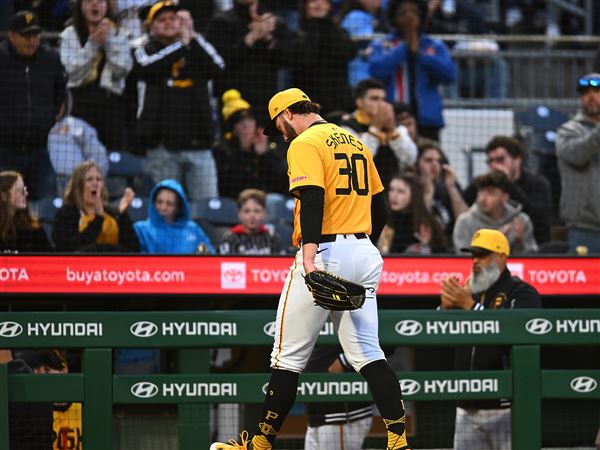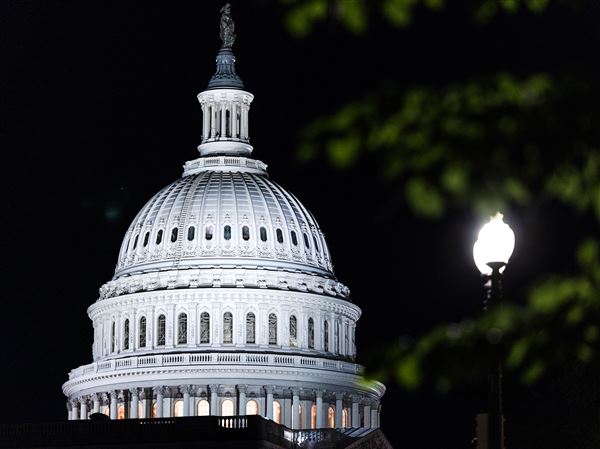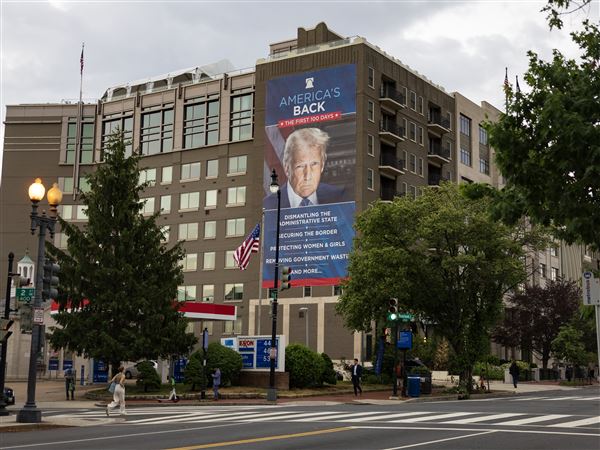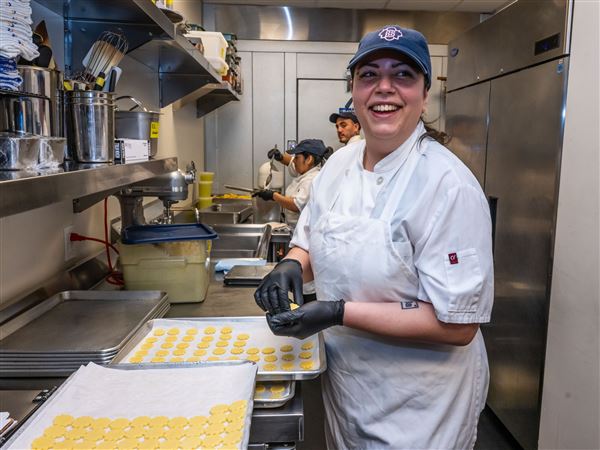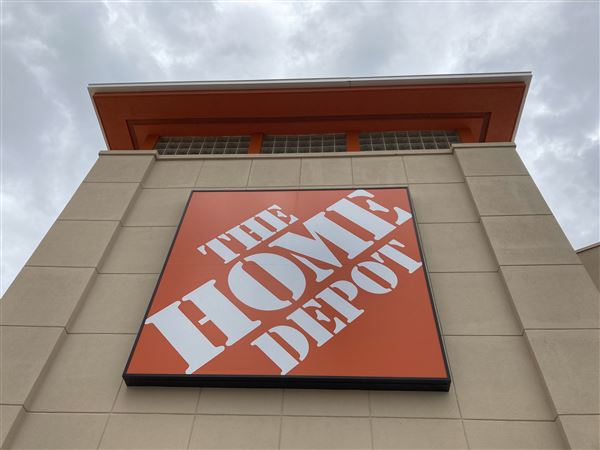CINCINNATI -- MLB commissioner Rob Manfred addressed members of the Baseball Writers Association of America today and discussed many topics, including Pete Rose, fan safety, pace of play and replay. Here are the highlights.
On Rose: “There is no change, in terms of the process, with respect to Pete Rose. The review of the original investigatory material is ongoing. I was surprised at how much material there was to be reviewed. We're taking a fresh look at all of that. I believe Mr. Rose deserves an opportunity to tell me in whatever format he feels most comfortable whatever he wants me to know about the issues. I'm sure there will be an in-person meeting. I want to make sure I have a good grasp of all the factual materials.
”No meeting has been scheduled. I'm not going to speculate about a timetable. There is no such thing under baseball's rules as double-secret probation.”
On MLB’s deal with DraftKings: “We've made absolutely clear to our players and front-office personnel that we do not believe that Draft Kings or any other daily fantasy (site) is an appropriate activity for them. We see a very clear distinction between people who affect the outcome of the game and fans who want to engage in that.”
On instant replay: “I remain a fan of replay. I think the effort to expand the replay system that Joe Torre and others led in our office was in response to a fundamental desire to use available technology to get calls right. If you start with that as your premise, you'll be successful. In terms of changes ... I think you will see an expansion of calls at the margins. I'm talking about types of calls that might be subject to review. I don't think it's necessarily an annual thing. I think more important, and this will be a big focus of ours ... we will continue to upgrade the technology ... to make reviews as fast as they possibly can be.”
On the size of the strike zone, and increased low strikes: “There has been no instruction this year that is any different with respect to the strike zone. I know there's a rumor out there, but it's absolutely untrue.”
Joe Torre, on the strike zone: “There are some misconceptions going around. We've told every team that the lower part of the strike zone is no different than it was a year ago. Two years ago, they were calling some low, low pitches. Last year and this year, no change. There also was a misconception that they are calling more strikes to speed up the game. There is nothing to that. The umpires have not gotten together and agreed to do (anything) to speed up the game.“
Manfred, on the Cardinals-Astros investigation: ”This is not our investigation. It's being conducted by the FBI and the U.S. Attorney. They are not sharing with us all of the information they have. This is very different an investigation into alleged PED use. Our best course is to let them finish their investigation and delay any action until that process is complete. I don't think this is a 'next few days' resolution.”
On fan safety: “We are working on the issue. I don't like to be reactive. Obviously, there was a very serious injury and it concerns us. Making a major change in the game in reactive mode is a mistake. The most likely course for us is that the evaluation will continue this season. Any change, if we decide to make one, will be something we be a new regulation for the clubs next year.“
On pace of game: ”I'm encouraged on the pace of game front for two reasons. We continue to get reports that games are moving along better. This initiative can't be judged solely by the length of games. That's a confusing piece of data. Useful, but confusing. It's hard to ignore the fact that we are down 9 minutes, which would be the largest decrease since 1965. The most important issue is how supportive the players have been. We've gotten observations that have caused us to re-evaluate some of the things we're doing, but they seem to be with the program. I'm encouraged about their attitude, collectively.”
On the All-Star game voting process: “Everybody was talking about eight Royals starters. Fans have a way of fixing things. I think we saw in places like Detroit and Houston, people said, 'OK, they had their say. But our guy's better.' That's a really good thing for our game. It gives you confidence that fan voting is a good mechanism. It has a way of correcting itself when things get out of whack. I don't think you could have a process that is more complete and more defensible in terms of identifying fraud that what we're doing online.“
On the Home Run Derby: ”The clock made a big difference. It causes the players to swing. Dramatic increase in the number of home runs that were hit in a dramatically shorter event. That's a good combination for the Home Run Derby.”
On the minor league pitch clock: “Early meetings before the Arizona Fall League experiment were lacking in unanimity. It was a controversial suggestion. The Arizona Fall League experiment was successful not only in terms of the pace of the game, it was successful in educating those people involved in the process who were, for want of a better term, clock haters. ... We are really encouraged by the results of that experiment, in terms of how it moves the game along. Now, how quickly or whether that migrates to the big league level is going to require conversations. We remain positive about the 20-second clock that it could be useful to the game at the big league level.“
On tough travel schedules: ”I think the schedule and travel issues related to it will be a 2016 topic. I know the Sunday night games are a problem. We're thinking about what can be done. We're looking at a variety of things to address some of the concerns.“
On the postseason: ”There are certain things about baseball that set it apart from other sports. I think our postseason is one of those things. I like the format we hA ave right now. I am a fan of the one-game play-in. Two reasons: I think it's really exciting for the fans ... and because of the way it was reached. It was reached by people who look at the game through very different lenses. The marketing guys like the excitement issue. The baseball operations guys had enough foresight to realize is what we're trying to do is disadvantage the wild card. If we go to a longer (wild-card) series, we're putting the division winners on ice for a period of time that might give them a disadvantage. That sort of consensus is a really nice thing. -- A shorter schedule is a major, major economic issue. We sell out in a lot of markets. The gates are really valuable to us. We have television commitments. There are game guarantees. If you're going to try to do something in that area, you've got to figure out something that's offsetting in the other direction. The one obvious possibility is making a change in the playoff format. I'm not suggesting that we're anywhere on either of those topics. But if your shorten the season, there would be pressure on the postseason as well.“
On expansion: ”I'm bullish on this game. Growth businesses, over an extended period of time, look to get bigger. So I'm open to the idea that there will be a point in time where expansion may be possible. I think it's very important for us to look at markets that are interested in baseball -- and there are markets that are interested –- examine their viability, think about what we can do to make them more viable so we have business alternatives available to us. We have a list of cities that we think are viable. If you read enough local papers, there is a list of cities that have identified themselves.“
First Published: March 24, 2016, 5:01 p.m.
